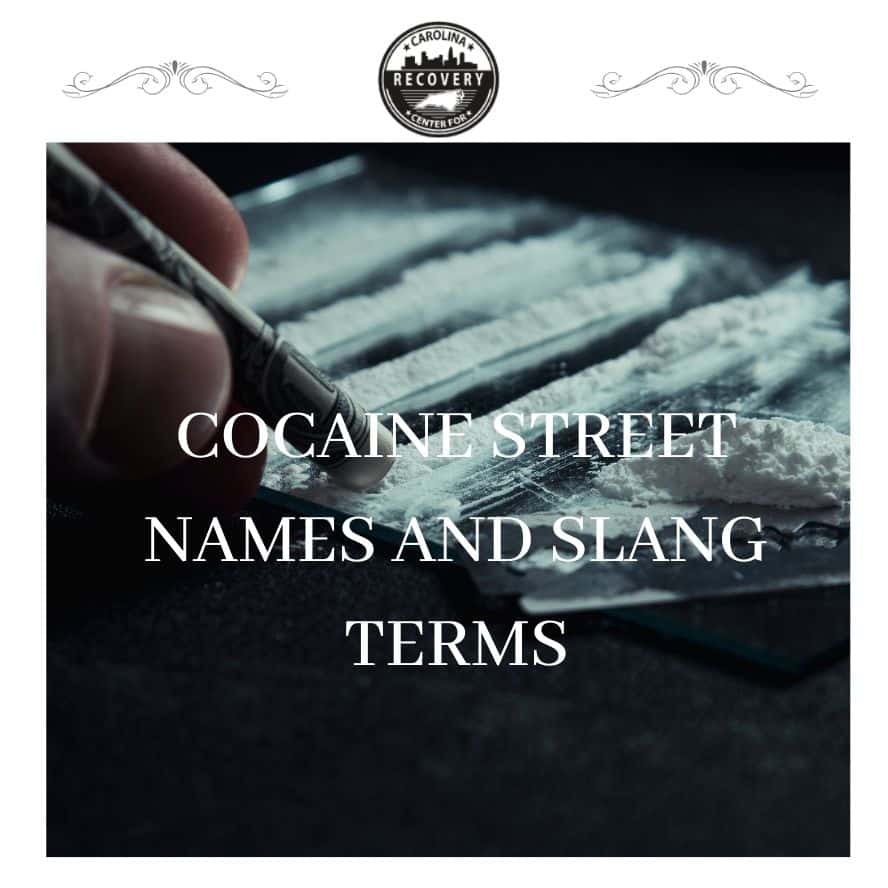Cocaine Street Names and Slang Terms

Medically Verified: 2/1/24
Medical Reviewer
Chief Editor

All of the information on this page has been reviewed and verified by a certified addiction professional.
Cocaine is a potent, illicit stimulant derived from the cocoa plant in South America. For thousands of years, people in this part of the world have chewed coca leaves or brewed them as tea for their stimulant effects. In the 1900s, people began to extract pure forms of cocaine hydrochloride. They used it for medical and recreational purposes in the decades after.
In the early 1900s, doctors noticed that patients who used cocaine for medical purposes would often become addicted to it and suffer significant harm to their emotional and physical health. Recreational cocaine use was prohibited by law in 1914, but this drug remains popular to this day.
While cocaine use fell drastically after it became illegal, it became popular again in the 1970s and 1980s. During this period, a cheaper form of cocaine, called crack cocaine, hit the markets and devastated communities.
According to the National Survey on Drug Use and Health, nearly one and a half million Americans struggle with cooking abuse or addiction. If you or someone you love struggles with cocaine abuse or addiction, help is available. Reach out to the Carolina Center for Recovery Specialists today to learn about our comprehensive, holistic substance abuse treatment programs.
Street Names for Cocaine
Cocaine is a stimulant drug with a long history. As a result, there are many street names and slang terms for this drug. Knowing common street names for cocaine may help you recognize when someone around you is using it or increase your understanding of drug use.
Some common street names for cocaine include:
- Blow
- Bump
- Big C
- Coke
- Crack
- Dust
- Flake
- Line
- Nose Candy
- Pearl
- Rail
- Snow
- Sneeze
- Sniff
- Speedball
- Toot
- White Rock
Cocaine is typically available in a whitish powder form that users snort. Many street names for cocaine refer to its appearance or how it is ingested.
Some of the street names for crack cocaine include:
- Black rock
- Candy
- Chemical
- Cookies
- Dice
- Gravel
- Grit
- Hail
- Hard rock
- Jelly beans
- Nuggets
- Purple caps
- Rocks
- Scrabble
- Sleet
- Snow coke
- Tornado
Similar to the street names for cocaine, many of the slang terms for crack cocaine refer to the drug’s appearance.
People sometimes mix cocaine with other drugs, including heroin, ecstasy, methamphetamine, marijuana, LSD, and PCP. These drug combinations have other street names that include:
- Boy-girl
- Candy flipping
- Cocoa puffs
- Flamethrowers
- Spaceball
- Speedball
- Woo-woo
- Woolies
Knowing some street names for cocaine and other drugs can help you identify a loved one’s substance use sooner and get the help you need as quickly as possible.
The Effects and Risks of Cocaine Abuse
Cocaine is a highly addictive stimulant. Once users ingest cocaine, it quickly travels to the brain and causes a flood of dopamine, which is a neurotransmitter involved in pleasure and reward. People who use cocaine recreationally may become physically and psychologically dependent on it quickly, requiring more and more to get the “high” they desire.
In addition to the risk of addiction, cocaine has other short and long-term effects and risks.
Short-term effects
Cocaine constricts blood vessels and increases central nervous system (CNS) activity. Some of the short-term effects of cocaine include:
- Dilated pupils
- Increased heart rate
- Elevated blood pressure
- Increased body temperature
- More energy
- Increased alertness
- Restlessness
- Irritability
- Anxiety
- Paranoia
- Tremors
- Muscle twitches
- Vertigo
Some people experience more severe short-term effects, including:
- Panic attacks
- Psychosis
- Arrhythmias (irregular heart rhythms)
- Erratic or violent behaviors
- Stroke
- Heart attack
- Seizures
These effects may be more likely to occur in people taking large doses of cocaine, which is a characteristic of people with cocaine addiction. However, these potentially life-threatening effects can happen when someone uses any amount of cocaine–even during their first use.
Long-term effects
Regular cocaine use can cause long-term damage to the cardiovascular system and harm a person’s mental and physical health.
Some of the long-term effects of cocaine abuse include:
- Appetite changes
- Malnutrition
- Ulcers, tears in the stomach and intestines, and other GI issues
- Liver and kidney damage
When someone stops using cocaine after a period of regular or heavy use, they are likely to experience withdrawal symptoms, including:
- Depression
- Fatigue
- Slow or cloudy thinking
- Increased appetite and weight gain
- Nightmares
- Insomnia
Treatment, supervision, and ongoing support are essential to helping people with cocaine addiction achieve and maintain sobriety.
Treatment for Cocaine Abuse and Addiction
Cocaine addiction is a complex condition with behavioral, physical, and emotional roots. People with cocaine addiction require comprehensive treatment that can help them identify the underlying causes of their substance misuse and give them the skills to avoid relapse for life.
While each person follows a specialized course of treatment, cocaine abuse rehab programs typically include:
- Individual behavioral therapy sessions
- Group and family therapy
- Medications
- Mental health treatment
- Relapse prevention education
- Yoga, exercise, nutrition support, and other holistic therapies
- Aftercare planning
It is possible to recover from cocaine abuse if you have the treatment and support you need. Holistic treatment programs can give people a foundation of skills to build a healthier, sober future.
Find Help Now
If you or someone you love need treatment for cocaine abuse or addiction, contact the Carolina Center for Recovery specialists now. Our comprehensive treatment programs will help you overcome addiction and move forward in the future you choose–not the one addiction picks for you.

